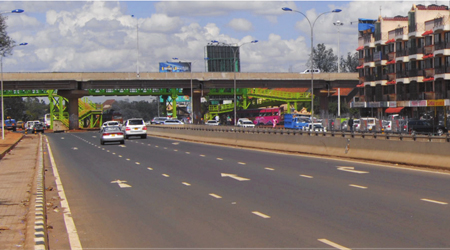×
The Standard e-Paper
Kenya’s Boldest Voice
 |
|
Sections of the Thika super highway. [Photo: Peter Muiruri /Standard] |
Last week, President Kibaki commissioned the Thika super highway with many calling it an infrastructural milestone. To some businesses along the highway, however, the road’s construction has brought them nothing but suffering, writes PETER MUIRURI







